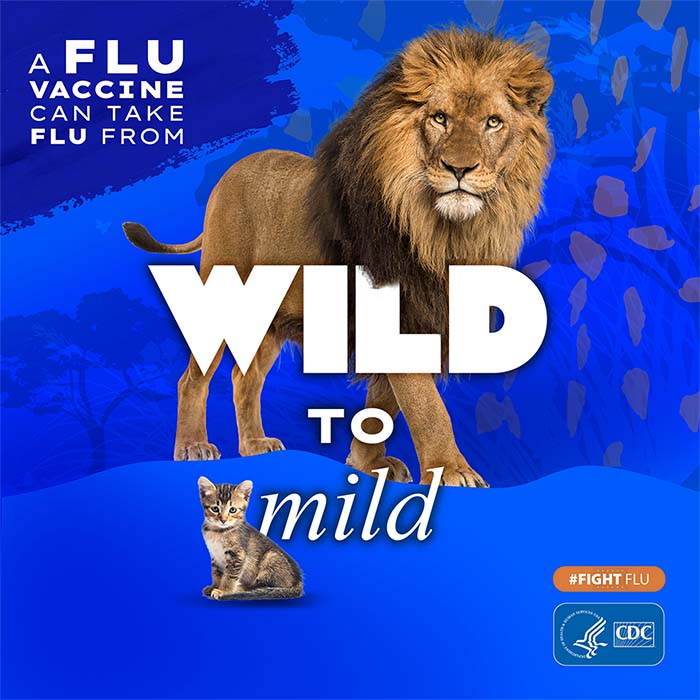New CDC Study: Influenza Vaccination Reduces Risk of Hospitalization By More Than Half Among Seniors
August 2, 2016—A new CDC study published today in the journal Clinical Infectious Diseases (CID) provides more evidence on the benefits of flu vaccination among older adults. The study looked at flu-associated hospitalizations among people 50 and older during the 2010-2011 flu season and found that people who had gotten a flu vaccine reduced their risk of flu-associated hospitalization by half.
People 65 and older are at high risk of serious flu complications and account for the majority of flu hospitalizations and deaths each year. The CID study “Case-control study of vaccine effectiveness in preventing laboratory-confirmed influenza hospitalizations in older adults, United States, 2010-11,” cites data from three recent influenza seasons, during which an estimated 115,000 to 630,000 hospitalizations and 5,000 to 27,000 deaths occurred. It’s estimated that people 65 and older accounted for between 54 percent and 71 percent of hospitalizations and between 71 percent and 85 percent of deaths.
The study, which compared 368 flu-hospitalized patients and compared them against case controls selected from the community, found that vaccinated people 50 years and older were 57 percent less likely to be hospitalized from flu than unvaccinated people. The benefits were similar by age group, including adults 75 years and older. This is a notable finding since flu effectiveness studies that have looked at how well vaccine protects against flu-related doctor’s visits have generally found that effectiveness is declines with age. This study indicates that protection against hospitalization was level among older people.
Annual influenza vaccination has been recommended for adults 65 and older in the U.S. since the 1960s and for adults 50 years and older since 2000. Since 2005, CDC has conducted annual influenza vaccine effectiveness studies to assess how well the vaccine works in preventing medically attended illness. Until recently, there have been few studies that look at how well the vaccine works in preventing more serious outcomes, like hospitalization. The CID study adds to a growing body of evidence that supports the importance of vaccination in order to prevent these more serious outcomes.
Study findings also support current U.S. recommendations for annual influenza vaccination among adults, especially among adults 65 years of age and older who are at high risk of influenza-associated complications. During 2015-2016, an estimated 66% of people 65 an older got a flu vaccine. While this is the highest vaccination rate among the public for any age group, that still leaves nearly one-third of people 65 and older unvaccinated.
